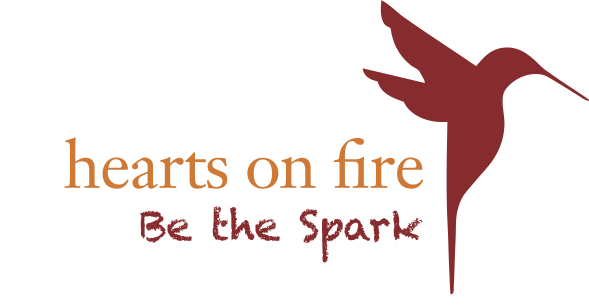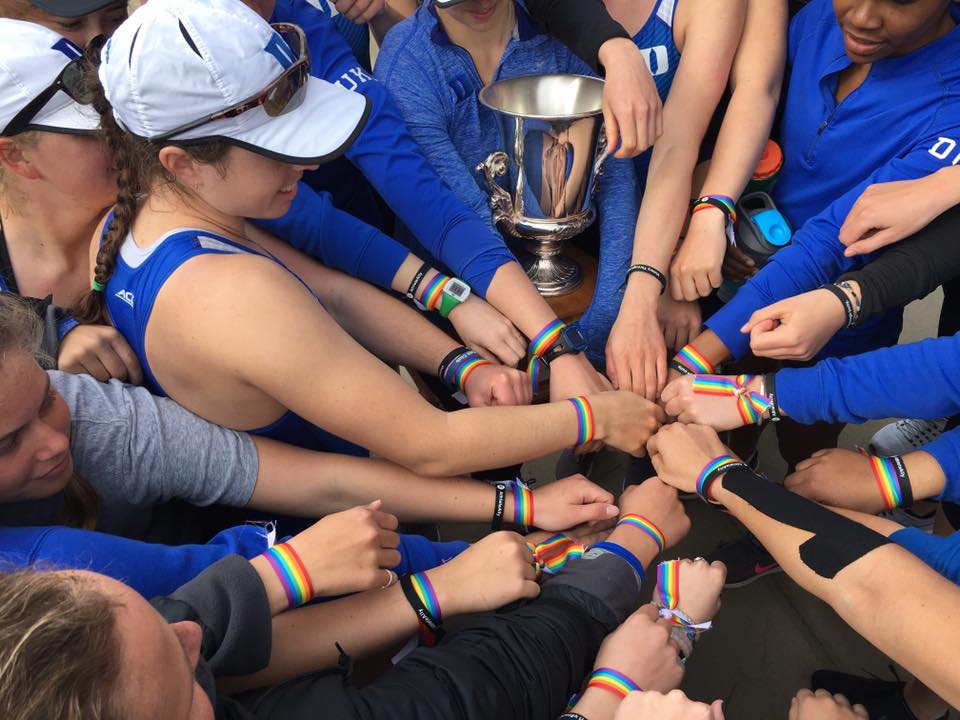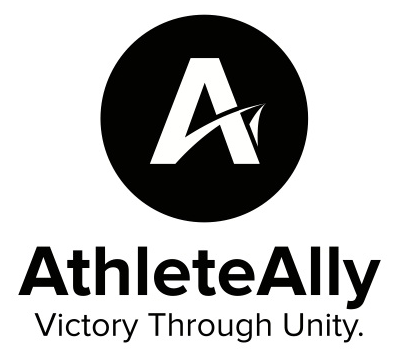Hudson Taylor | Athlete Ally
Hudson Taylor
Wrestling with Prejudice
Growing up in suburban New Jersey, Hudson Taylor was not one of the ‘cool’ kids. In sixth grade, he enjoyed taking ballet, despite putting up with jokes about wearing a leotard. And in a town where soccer was the ‘in’ sport, he preferred wrestling. But what was very cool about Hudson was his unwavering determination to follow his own path, not someone else’s.
“I learned at early age I’m going to do what I want to do, no matter what people think.”
That attitude served Hudson well. During high school and college, he performed in the choir and in theatre and he continued to excel in the sport he loved. And while he became a top-ranked, All-American, champion wrestler, his teammates used homophobic insults to degrade his decision to join choir and theatre.
“I really felt comfortable not caring what others thought. Athletes have cultural capital. The more successful, the more permission is given to be who they are. If I wasn’t the most decorated wrestler, would I have been comfortable doing those things? Probably not.”
In college that reality really hit home. Hudson remembers a student in his theatre class standing up and proudly announcing that he was gay.
“What followed transformed my life forever. In a matter of seconds a roomful of students was clapping for this student, showing support and acceptance for his brave decision to live his authentic life -- and it got me thinking. If someone stood up in our locker room and made the same announcement, would he be met with the same level of acceptance and support from our team? I knew the answer was no.”
At that moment Hudson says he understood that something had to be done to make the athletic community as welcoming to LGBTQ people as his theatre community.
He began small, adding an LGBTQ equality sticker to his wrestling headgear. The move earned him positive media attention, and an avalanche of emails from closeted athletes, sharing their own experiences.
Hudson Taylor wearing an LGBTQ equality sticker on his headgear
“I got about two thousand emails from closeted athletes from across the country. Things like, ‘Hudson, ‘I’m going to try out for the wrestling team; I’m going to go into the locker room and not be afraid.’ So that was really the moment when, wow, if I can get that response as a wrestler…imagine if I had been a football player or a team or a league.”
With graduation on the horizon, Hudson made an unusual decision. In addition to coaching, he would become an activist on behalf of the LGBTQ community, particularly in the arena of sports. Why was that so unusual? Not just because Hudson is a straight man. There is also his family.
“We don’t talk about it much. It’s tricky.”
Hudson was raised in a stalwart Evangelical Christian family. His Great Grandfather, James Hudson Taylor, was one of the first missionaries to China, and both his mother and his sister attended Bible College. So Hudson’s plans were a challenge.
“Faith-based communities see any acceptance of the LGBTQ community as an endorsement of that community. They are fearful that being an outspoken ally will be counter to faith-based beliefs.”
To his family’s credit, they never discouraged him from the commitment he had made to himself and the LGBTQ community.
After years of competing in sports, it was clear to Hudson that systemic homophobia and transphobia had isolated LGBTQ athletes and coaches and made many afraid to come out.
“The perceived risks outweigh the perceived rewards. For many athletes, this is the way they’ve been trained to earn a living; the risk of losing that opportunity keeps them closeted.”
To help change the athletic culture, in 2011 Hudson launched Athlete Ally with a mission of fostering inclusive sports communities through public awareness campaigns, educational programs and political action.
“There’s never been a successful social justice movement for a minority group without the support of the majority. If we’re serious about homophobia, transphobia and sexism, it can’t just be the responsibility of those impacted by it. We all have to do our part to make our teams, our leagues and our communities, everything we think they should be.”
Among its current petitions, Athlete Ally is asking the NCAA not to award championship tournaments to states that are not inclusive. And, recently, it published an open letter calling on World Rugby to abandon its policies that deter transgender athletes from competing.
“Sports should be a place where everyone can be themselves,” says Hudson.
Duke University Women’s Rowing team preparing for an Athlete Ally Pride match
Six years in, Hudson says two of the biggest obstacles to achieving that goal are conformity and awareness.
“First and foremost, everybody wants to fit in, everybody wants to be accepted by their peers. In sports, that’s especially the case. That pressure to conform makes it easier, safer to laugh at the homophobic joke than to call it out.”
Add to that, Hudson says, is the fact that he, like many athletes, never thought he had a guy on his team or in his social circle who was gay and that creates a lack of awareness.
“If we don’t know anybody who’s being personally affected by homophobic language or sexist jokes, we often feel as though we don’t need to speak out against it. Until people become aware of how their words and actions are excluding others, we’re not going to be able to make sports as inclusive as it should be.”
Hudson visits 30 colleges a year to work with administrators, coaches and sports programs. He says even in the most progressive places, it’s the first time the discussion has been had in sports.
“When we are fortunate to engage in those discussions, it’s always well received. As we can get silent allies to speak out, the culture of sport begins to change.“
And the numbers are encouraging. Hudson says in 1990, the average age of people coming out was 26. Now it is 14.
“Today’s athletes and coaches will know someone in their life who is LGBT. When you know someone who is impacted, it changes the way you think about the issue and how you conduct yourself. We can all be better than we are.”
Athlete Ally believes that anyone who touches sports should be educated about respecting the LGBTQ community on the field and in society as a whole.
Athlete Ally community at the 2017 Women’s March in Washington D.C.
“It’s important to build a network of allies who are helping each other in their fight. I want everybody to be able to use their platform with a purpose. Quite simply, I want to see a world where all people are treated with dignity and respect.”
And he believes that athletes play a major role in achieving that because the love of sports and adulation of sports figures is universal. That’s why his vision includes spreading his message globally and developing allies in places where being LGBTQ is punishable by fines, arrest or death.
“When I think about the most memorable moments in sports history, they’re the moments when sport and social justice intersected. So if we can start to mobilize athletes around social justice, if athletes understand the power they have, their potential to change the world is limitless.”
Hudson was a three-time NCAA All-American and two-time NCAA Academic All-American wrestler who racked up the most pins; most wins in the history of the University of Maryland. He is ranked among the top five pinners in NCAA wrestling history and holds several hall-of-fame records. After graduating from the University of Maryland, Hudson became a wrestling coach at Columbia University in New York. He also has a blog on HuffPost. His newest passion is teaching Jiu-jitsu.
Watch
Take Action
Sign a petition to make sports more inclusive or become an ally or a campus ambassador and help end discrimination against LGBTQ people. Details at www.athleteally.org






